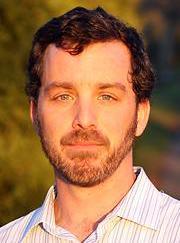Can medical workers safely reuse face masks in COVID-19 pandemic?
Addressing global shortage, UMass Amherst scientist carries out critical tests on N95 masks.
AMHERST, Mass. – Urgent research at the University of Massachusetts Amherst is investigating whether health care providers can safely reuse protective face masks, which could slow the Covid-19 pandemic and ease a critical equipment shortage endangering medical workers and patients worldwide.
Richard Peltier, professor of environmental health sciences in the School of Public Health and Health Sciences, is testing N95 masks in the lab to see if they are still effective at blocking infectious particles after sterilization. “Face masks can only be reused after they are sterilized, but whether they continue to work as designed is not yet known,” he says.
Peltier’s laboratory usually studies air pollutants around cities or within homes. But previous work in his lab tested another type of mask that was found not to work as well as the N95 masks worn by doctors, nurses, technicians and other health care providers.
In light of the Covid-19 epidemic, hospitals around the world face a critical shortage of N95 masks, and sterilization of previously worn masks would help ease the insufficient supply. Peltier’s laboratory will use state-of-the-art pollution instruments and a mannequin head to measure whether microscopic particles can pass through the masks after they are sterilized.

He is partnering with Dr. Brian Hollenbeck, chief of infectious disease at New England Baptist Hospital in Boston, to assess whether the masks continue to work after one or two sterilization cycles. If the masks work as well as when they were new, it would allow clinicians to wear the mask multiple times per day, without the risk of infecting others with germs, and dramatically reducing the chance that clinicians become infected.
“As an environmental health scientist, I must pivot to issues that are most impactful for public health,” Peltier says. “Serving the public’s interest is at the core of our university’s mission. It’s also the right thing to do.”
N95 face masks are worn over the mouth and nose, and capture particulates in the air. They are usually viewed as disposable protective equipment, designed to be worn once and then discarded.
When new, they are very effective at protecting a person from particulates, including droplets that carry infectious agents like Covid-19. Initial test results are expected by the end of this week.